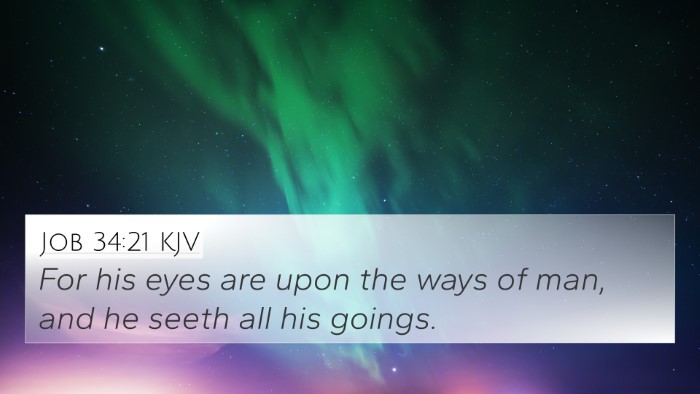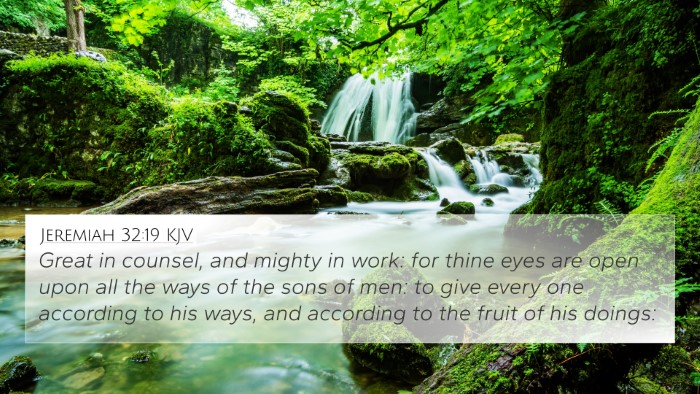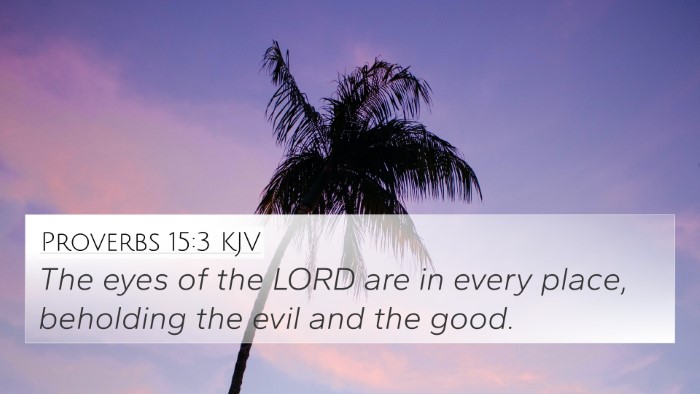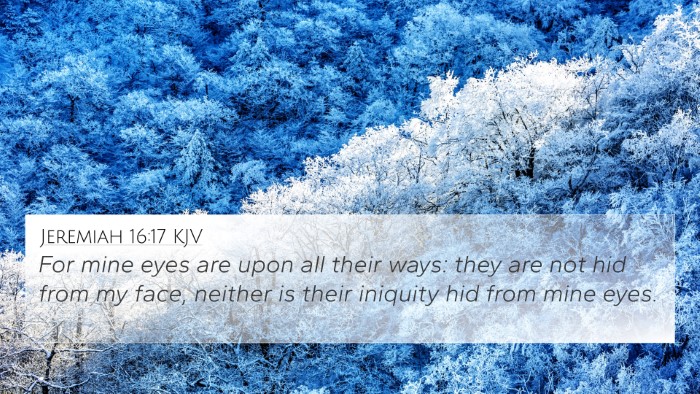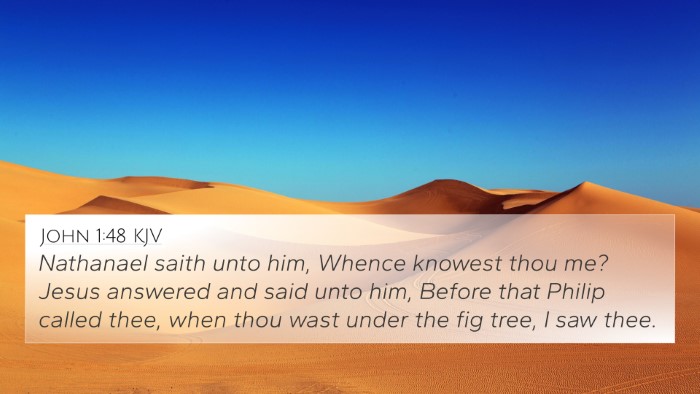Understanding Job 31:4
Job 31:4 states, "Does He not see my ways and count all my steps?" This verse captures Job's plea, highlighting his quest for divine justice and understanding amidst suffering. Here, Job argues for his integrity, invoking God's omniscience regarding his life and actions.
Insights from Public Domain Commentaries
Exploring this verse through the lens of Matthew Henry, Albert Barnes, and Adam Clarke provides a multifaceted understanding:
-
Matthew Henry's Commentary:
Henry emphasizes God's omnipresence and omniscience, noting that Job is conscious of divine scrutiny over human actions. He conveys that Job's rhetoric illustrates the importance of living with an awareness of God observing one’s conduct.
-
Albert Barnes' Notes:
Barnes highlights the idea that Job insists on his innocence and seeks to remind God that He knows every thought and action. This request for justice is framed as an appeal to God's awareness of Job's moral standing.
-
Adam Clarke's Commentary:
Clarke delves into the implications of divine observation. He states that Job is affirming his position, questioning if God sees his life and maintains account of his deeds, which reflects human accountability before divine judgment.
Bible Cross-References for Job 31:4
To deepen the understanding of this verse, the following Bible verses create connections that enhance its meaning:
- Psalm 1:6 - "For the Lord knows the way of the righteous, but the way of the wicked will perish." This verse parallels Job’s assertion of God’s awareness.
- Proverbs 5:21 - "For a man's ways are before the eyes of the Lord, and he ponders all his paths." Echoes the theme of divine observation.
- Hebrews 4:13 - "And there is no creature hidden from His sight, but all things are naked and open to the eyes of Him to whom we must give account." This reinforces the theme of divine scrutiny.
- Psalm 139:1-2 - "O Lord, You have searched me and known me. You know my sitting down and my rising up; You understand my thought afar off." A direct reflection of Job's feelings of being observed by God.
- Jeremiah 16:17 - "For My eyes are on all their ways; they are not hidden from My face, nor is their iniquity hidden from My eyes." This links to the accountability theme.
- Isaiah 29:15 - "Woe to those who seek deep to hide their counsel far from the Lord, and their works are in the dark; they say, 'Who sees us?' or, 'Who knows us?'" This shows the futility of attempting to escape God’s awareness.
- Ecclesiastes 12:14 - "For God will bring every work into judgment, including every secret thing, whether good or evil." This further supports the idea of divine oversight.
Thematic Connections between Bible Verses
Job 31:4 is intricately connected with various Biblical themes, such as:
- Omniscience of God: Understanding that God sees all actions and knows all thoughts.
- Accountability: The responsibility individuals have for their actions before God.
- Integrity and Righteousness: Job's insistence on his moral standing in front of God amidst trials.
Tools for Bible Cross-Referencing
For further study, various tools can aid in cross-referencing biblical texts for deeper insights:
- Bible concordance: Useful for finding specific words and concepts within scripture.
- Bible cross-reference guide: Designed to help locate verses that relate to one another.
- Cross-reference Bible study: Techniques for comparing and connecting scripture passages.
How to Use Bible Cross-References
Utilizing a cross-reference system can enhance your Bible study:
- Identify themes or keywords and track their occurrences throughout the Bible.
- Compare similar passages to grasp varied perspectives on the same topic.
- Explore New Testament references to Old Testament scriptures for full context.
Conclusion
Job 31:4 serves as a profound reminder of God's omniscience and the accountability of human actions. By connecting this verse with others, believers can gain a richer understanding of the principles of divine observation, integrity, and the pursuit of righteousness. Engaging in comparative Bible verse analysis and utilizing cross-referencing techniques can further deepen one’s grasp of scripture.




